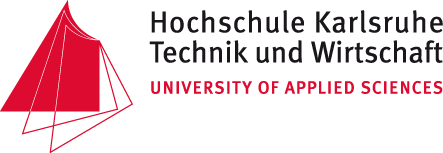The team
Stefan Bräse
Stefan Bräse is director of the Institute of Biological and Chemical Systems - Functional Molecular Systems (IBCS-FMS) and full professor at Institute of Organic Chemistry (IOC).Britta Nestler
Britta Nestler is a full professor for microstructure simulation in materials engineering at the Department of Mechanical Engineering at Karlsruhe Institute of Technology (KIT). She is director of both, the Institute of Applied Materials (IAM-CMS) at KIT as well as the Institute of Digital Materials Science (IDM) at Karlsruhe University of Applied Sciences. |
Institute of Biological and Chemical Systems – Functional Molecular Systems (KIT) |
IBCS-Functional Molecular Systems is an interdisciplinary institute combining fundamental research in Biology and Chemistry. The aim of the institute is the improvement of the understanding of biological processes (e.g. cellular communication or disease progression) using advanced materials and chemical processes. The working groups focus on developing new smart materials, miniaturized high content screening methods as well as the design of novel biomedical tools for the treatment of diseases. The institute hosts the infrastructure Compound Platform including activities in cheminformatics and the development of scientific infrastructure. |
|
| Nicole Jung | nicole.jung@kit.edu |
 |
Steinbuch Centre for Computing (KIT) |
The Steinbuch Center for Computing (SCC) is the center for information technology of KIT and conducts its own research in addition to the tasks specific to an IT service center. The SCC plays a leading role in the fields of Large Scale Data Management & Analysis (LSDMA). |
|
| Felix Bach | felix.bach@kit.edu |
 |
Institut für Digitale Materialforschung (HsKA) |
The Institute for Digital Materials Science (IDM) focuses on the development of new modelling and simulation techniques for applications in the field of computational materials science and for optimisations of production technology concepts. Key topics of the institute include the generation of digital twins of microstructures and the derivation of structure-property correlations, by means of multiscale- and multiphysics materials modelling. In this context, the objective is to develop time- and cost-saving, highly efficient simulation methods, in order to design new materials computationally. At MoMaF, the IDM concentrates on the development of modules for the electronic laboratory notebook (ELN), which enable the data-driven analysis of databases. |
|
| Patrick Altschuh | patrick.altschuh@hs-karlsruhe.de |
.png) |
Institute for Applied Materials (KIT) |
The Institute for Applied Materials – Computational Materials Science comprises expertise in the development of scalable simulation software, for the conduction of high-performance material simulations, as well as in the processing and analysis of (3D + t) data. A special focus is on the implementation of parallel algorithms, to enable a numerical solution of material models, for large-scale simulations, based on the phase-field method, in which coupled multiphysical fields are included. Furthermore, the applied software framework Pace3D contains a compendium consisting of 3D algorithms that enable the generation of different microstructure morphologies with defined properties. At MoMaF, the IAM-CMS is responsible for providing use cases and developing workflows that facilitate the pre- and postprocessing of materials data. |
|
| Michael Selzer | michael.selzer@kit.edu |
 |
Insitute of Applied Informatics and Formal Description Methods (KIT) |
The AIFB was founded in 1971 and has ever since contributed to the development and application of highly innovative products and services in the area of information and communication technology. The main focus of the research activities at AIFB lies on the applicability of software technology across different working domains. This implies the conceptualisation and development of sustainable information systems, which can easily adapt to changing conditions and requirements. At MoMaF the AIFB will mainly focus on the continuous support of the data annotation process based on the research workflow at the laboratory. |
|
| Gunther Schiefer | gunther.schiefer@kit.edu |
 |
KIT Library |
The KIT library is responsible for quality assurance in connection with the publication and reuse of research data and metadata. |
|
| Doris Jaeger | doris.jaeger@kit.edu |
 |
FIZ Karlsruhe – Leibniz Institute for Information Infrastructure |
FIZ Karlsruhe is one of the large infrastructure institutions in Germany and member of the Leibniz Association. In the project, it will assess the research data sets of SDC MoMaF with regard to copyright issues. This will provide a legal basis to determine who within the research process will decide on archiving, making accessible, and reusing digital research data. The technical development steps of SDC MoMaF are continuously monitored with regard to data privacy law. In addition, FIZ Karlsruhe will mainly contribute legal information to the process of integrating research data management into the training of young scientists. At state level, FIZ Karlsruhe is actively contributing the SDC MoMaF's legal expertise to the working group on law, thus working with the other three SDC towards common science-friendly standards for research data management. |
|
| Thomas Hartmann | tho.hartmann@fiz-karlsruhe.de |




